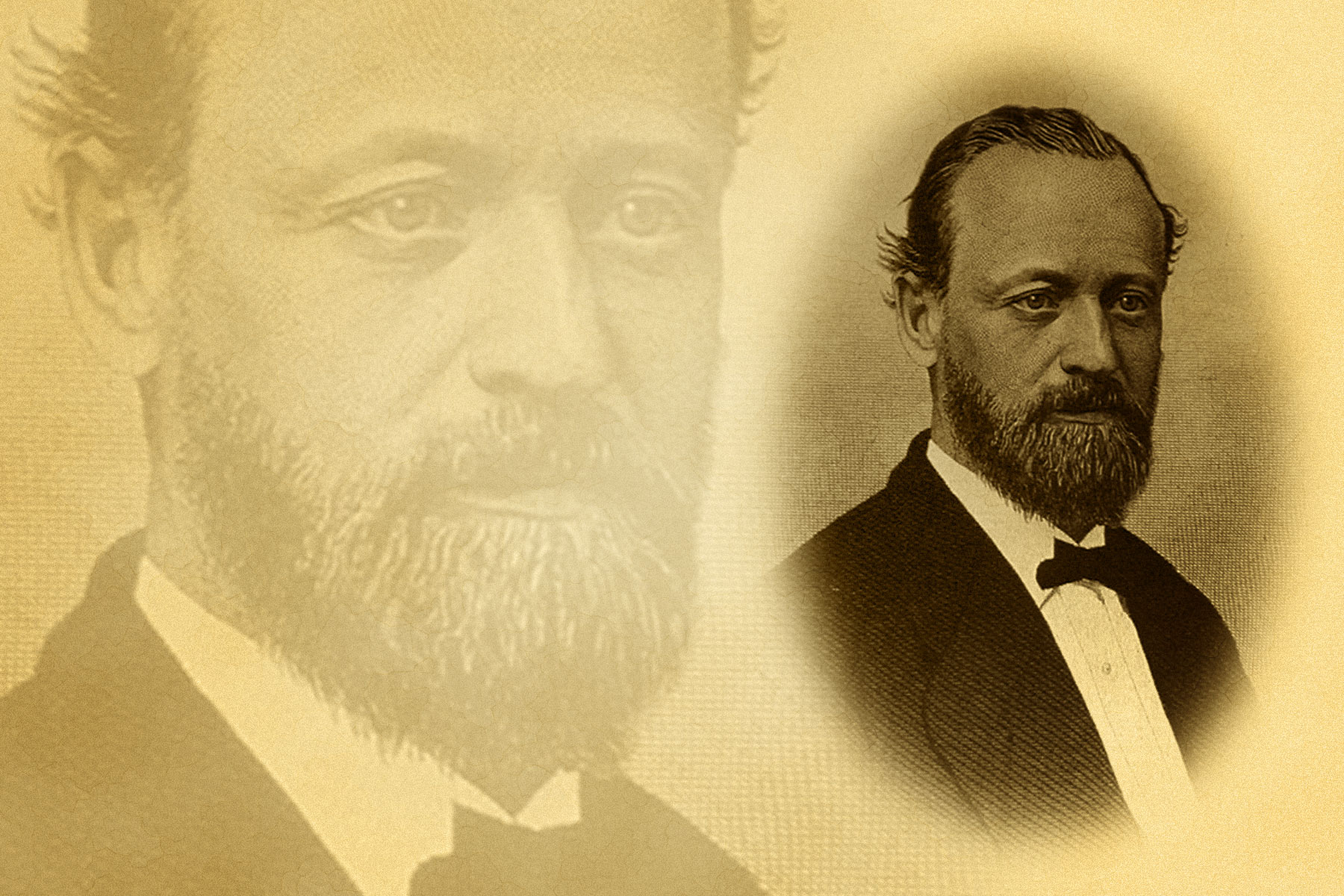
Today is the future from a century ago. During that bygone era, would young leaders of industry, government, health care, and education in Milwaukee been able to imagine the generational impact their lives would have on the city we live in today?

Joseph Schlitz
Age: 35
Probably one of the most famous names associated with Milwaukee beer history. Schlitz was born in Mainz, Germany where he received his education and also a four year program in bookkeeping. He arrived in Milwaukee in 1850 and shortly thereafter was hired by August Krug to be the bookkeeper for his growing brewery. From 1850 up to 1855 the brewery grew from 250 barrels to 1500 barrels a year. Following a German practice Schlitz and other brewery employees lived with their employer. Work was generally 10 hours a day six days a week.
In the same year that Schlitz arrived in Milwaukee another arrival was 8 year old August Uihlien, a future head of the brewery, whose uncle was August Krug. Krug was injured in a brewery accident in 1856 and died as a result of his injuries. It is reported that Krug, realizing he was dying, told Anna Marie, his wife, that she could depend on Schlitz to help run the brewery. Whether this is true or not, Schlitz began to play a major role in running the brewery and in 1858, two years after Krug’s death, Joseph and Anna Marie were married. Schlitz invested in the brewery and then changed the name of the brewery to Schlitz Brewery.
Under Schlitz the brewery was growing and by 1867 brewing 5,775 barrels a year, making it the 4th largest brewery in Milwaukee just behind Blatz brewery. In 1871the great Chicago fire destroyed the local breweries and Schlitz and others saw an opportunity to gain market share by offering free beer for short period and then building distribution capacity in Chicago. This was also the beginning of Schlitz starting a national distribution effort to expand the business eventually becoming the largest brewery in the U.S. Schlitz, Pabst and Budweiser would vie for this number one distinction with Budweiser the eventual winner.
Schlitz was also an avid marksman and took a trip back to Germany in 1875 to participate in a sporting event as well as visiting family. Upon his return to Milwaukee his ship, the Schiller, sank off of Land’s End, England. His body was never recovered; his wife even offered a $25,000 prize for recovery. The Schlitz monument at Forest Home is a cenotaph, term for monument for someone who is not actually buried at that location. The monument also has a rendering of the ship the Schiller at its base.
Schlitz and his wife had no children and thus Anna Marie turned to the nephews of August Krug, the Uihlien brothers, to help run the brewing business. Once the brothers gained control of the brewery they did consider changing the name of the brewery, but they determined that the brand name Schlitz was too well established to change. The famous brewer marketing phrase, “The beer that made Milwaukee famous” came into being in the early 1900s.
May 15, 1831 – May 7, 1875
Paul Haubrich Series: Yesteryear’s Forty Under 40














